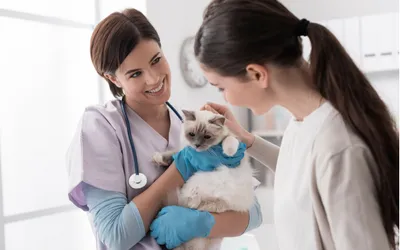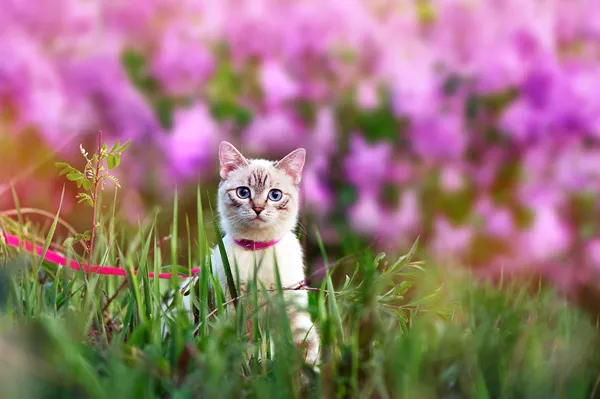Anorexia in Cats

A cat that does not want to eat, or is not eating, is a cat with a potentially life-threatening medical condition. Many conditions can lead to the inability of your cat to eat or lose her appetite completely. It is important to find the underlying cause so that an appropriate treatment plan can be created. Appetite stimulants may be prescribed, and in some cases, a feeding tube may be placed by your veterinarian. Decreased food intake or any change in eating habits warrants investigation by your veterinarian.
Alternative Diets: Does My Cat Require a Special Food?

Alternative diets cover a range of options that target specific feline nutritional needs. While some alternative diet options include certain ingredients like novel protein sources, others exclude certain ingredients like grains. Determining which diet is best for your cat should include a discussion with your veterinarian, as there is no documented data that alternative diets are any healthier for the average cat compared to conventional diets.
A Cleaner, Greener Home for Your Pets

There are many environmentally friendly ways that owners can care for their pets. Waste disposal can involve biodegradable or compostable bags or careful composting. Cat litter can be transitioned to recycled newspaper or sawdust pellets. Any toys, beds, houses and other accessories can be biodegradable and/or recycled such as cotton or rubber. Cats should be kept indoors to reduce their impact on the ecology of their surrounding environment. A nutritionally adequate diet composed of organic food can be provided.
Feline Infectious Peritonitis Testing

FIP is one of the most challenging diseases to diagnose because feline coronaviruses are commonly found in the intestinal tract of many healthy cats. When this virus mutates or changes, clinical disease occurs. Unfortunately, routine blood testing for feline coronavirus is not clinically useful. Instead, testing is restricted to those cats in which a diagnosis of FIP is strongly suspected due to clinical signs and other supportive laboratory data. Histopathology remains the best way to diagnose FIP in the living cat.
Fecal Occult Blood

A fecal occult blood test screens for the presence of hemoglobin (a component of red blood cells) in a fecal sample. Many conditions can cause blood to appear in the stool including intestinal ulceration, neoplasia, dental disease, and parasites.
Fecal Flotation

A fecal flotation is a screening test for internal parasites. It is performed by mixing a small sample of stool with a special solution that causes any parasite eggs to float to the surface of the solution. Young pets need multiple fecal flotations to screen for infection, while adults may only need a fecal screening once yearly unless they are at higher risk of infection.
Fecal Baermann

A fecal Baermann is a special fecal test used to diagnose infection by parasites that pass larvae in stool instead of eggs. A small golf-ball sized sample of fresh stool is mixed with warm water to encourage larvae to separate from the fecal material to allow identification. The most common parasite diagnosed with a fecal Baermann is lungworm, which typically causes signs of coughing.
Electrocardiogram in Cats

An electrocardiogram, or ECG, is a test that is used to assess the heart. More specifically, an ECG records the transmission of an electrical impulse through the heart. This test is not painful and is typically performed as an outpatient procedure. Analyzing the electrical impulses produced as the heart beats can help identify a number of different abnormalities within the heart.
DNA Testing

DNA is a large complex molecule that carries the genetic information or genetic code of an organism. All common forms of life, such as viruses, bacteria, plants, and animals carry a copy of their own genetic code in each of their cells. Each organism has a unique section of DNA that is just like a fingerprint. DNA-PCR is often used to detect the presence of infectious organisms; especially when detecting extremely small numbers of infectious organisms and for detecting certain viruses and bacteria that are difficult to diagnose by other methods.
Diarrhea Questionnaire for Cats

If your cat is having diarrhea, please complete this questionnaire as accurately as possible before your appointment. This information will be very helpful to your veterinarian in determining the cause of diarrhea.

